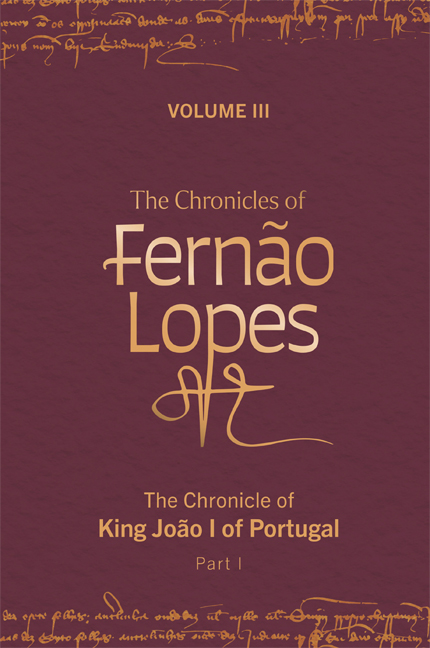Chapter 143 - How Nuno Álvares arranged to take Monsaraz by guile, and the manner in which it was seized
Published online by Cambridge University Press: 28 December 2023
Summary
While Nuno Álvares was in that town, ready to go anywhere where the enemy wanted to wage war, he learned that Gonçalo Rodrigues de Sousa, who held the castle of Monsaraz and had thrown in his lot with the Castilians, had ordered the person who held the castle in his stead to declare support for the King of Castile and hold the castle for him. Nuno Álvares was very disturbed at this because the place was on the frontier, from which he planned to undertake actions in the service of the Master as the occasion arose; and furthermore, because such a good nobleman [as Gonçalo Rodrigues], and others whom the Master trusted and to whom he granted favours, were no longer acting genuinely in his service, as could be seen by the behaviour of some. The suspicions that people formed about him in Oporto when he went as captain of the fleet now seemed to be well founded.
You should know, since we have not yet mentioned it, that this Gonçalo Rodrigues was the son of Rodrigo Afonso de Sousa, a great nobleman, born to him by an unmarried woman, Constança Gil, at a time when he himself was a married man.
Wanting to gain that castle, Nuno Álvares proceeded in the following way. He received reliable information that the squire who was acting as governor had with him only his wife and a few men, and that he was short of provisions. Nuno Álvares spoke to one of his trusted squires, and gave him about ten to twelve men to accompany him, and make their way during the night to the outskirts of the town. He, from the other side of the castle, would arrange for five or six cows to be driven down into a nearby valley, as if they were abandoned and left behind from some pillaging carried out by the Castilians. He reckoned that the governor would go out after them through the gate called Colorquia, and would not bother to close it so as to herd the cows into the castle. The squires were to keep watch on the governor so that, when they saw him go out of the castle, they would all immediately dash inside and close the gate promptly behind them.
- Type
- Chapter
- Information
- The Chronicles of Fernão LopesVolume 3. The Chronicle of King João I of Portugal, Part I, pp. 281 - 282Publisher: Boydell & BrewerPrint publication year: 2023

